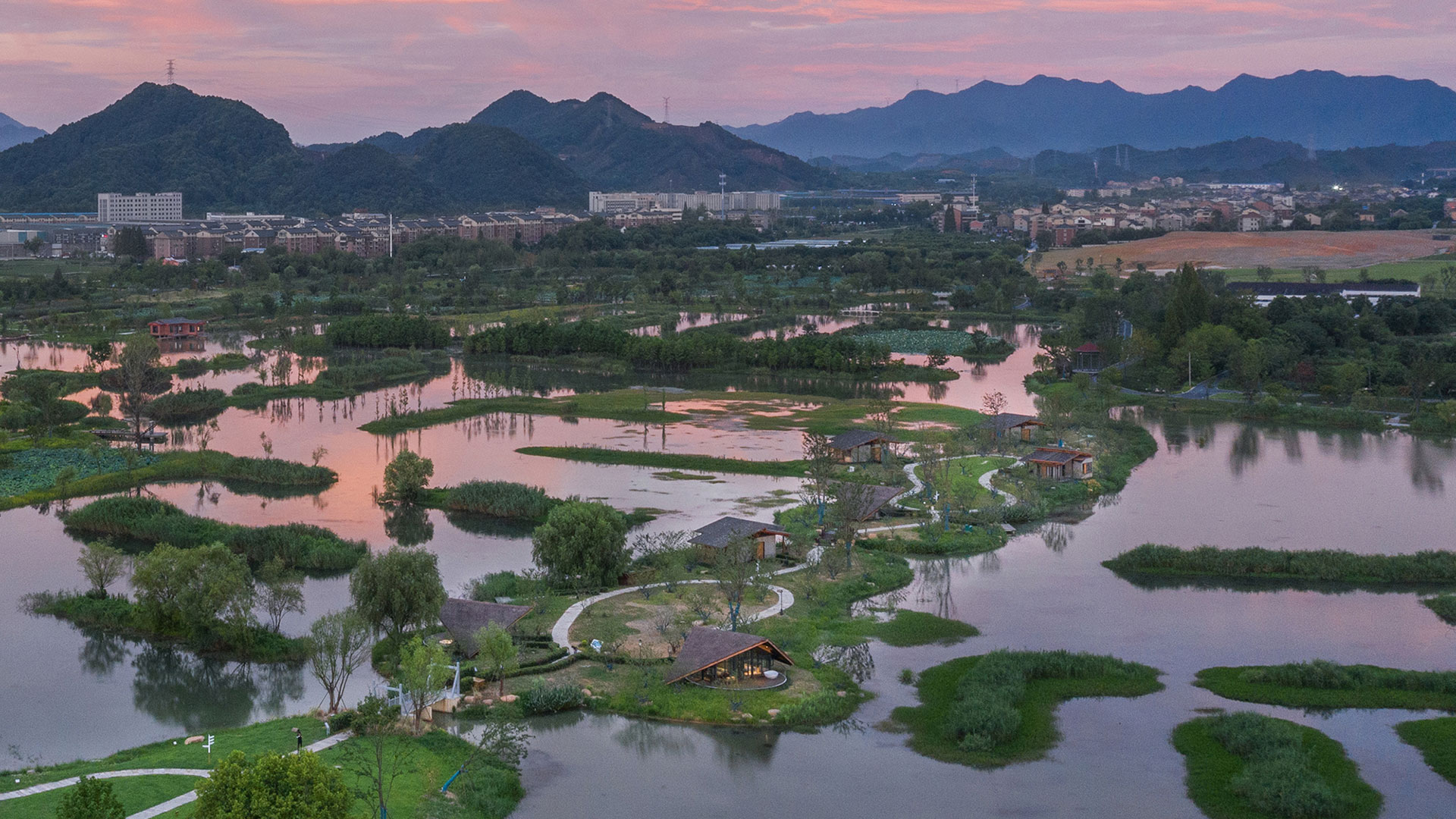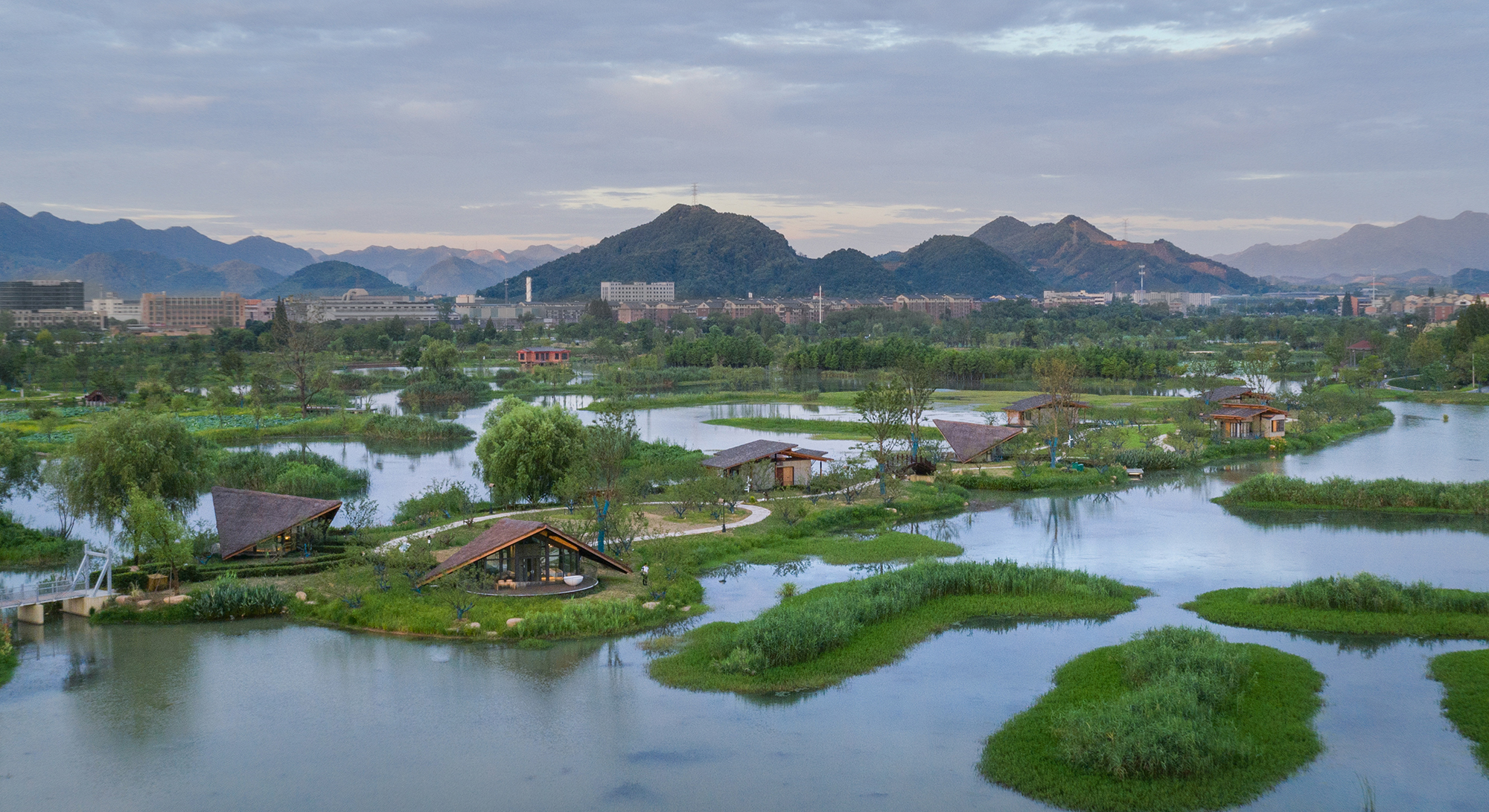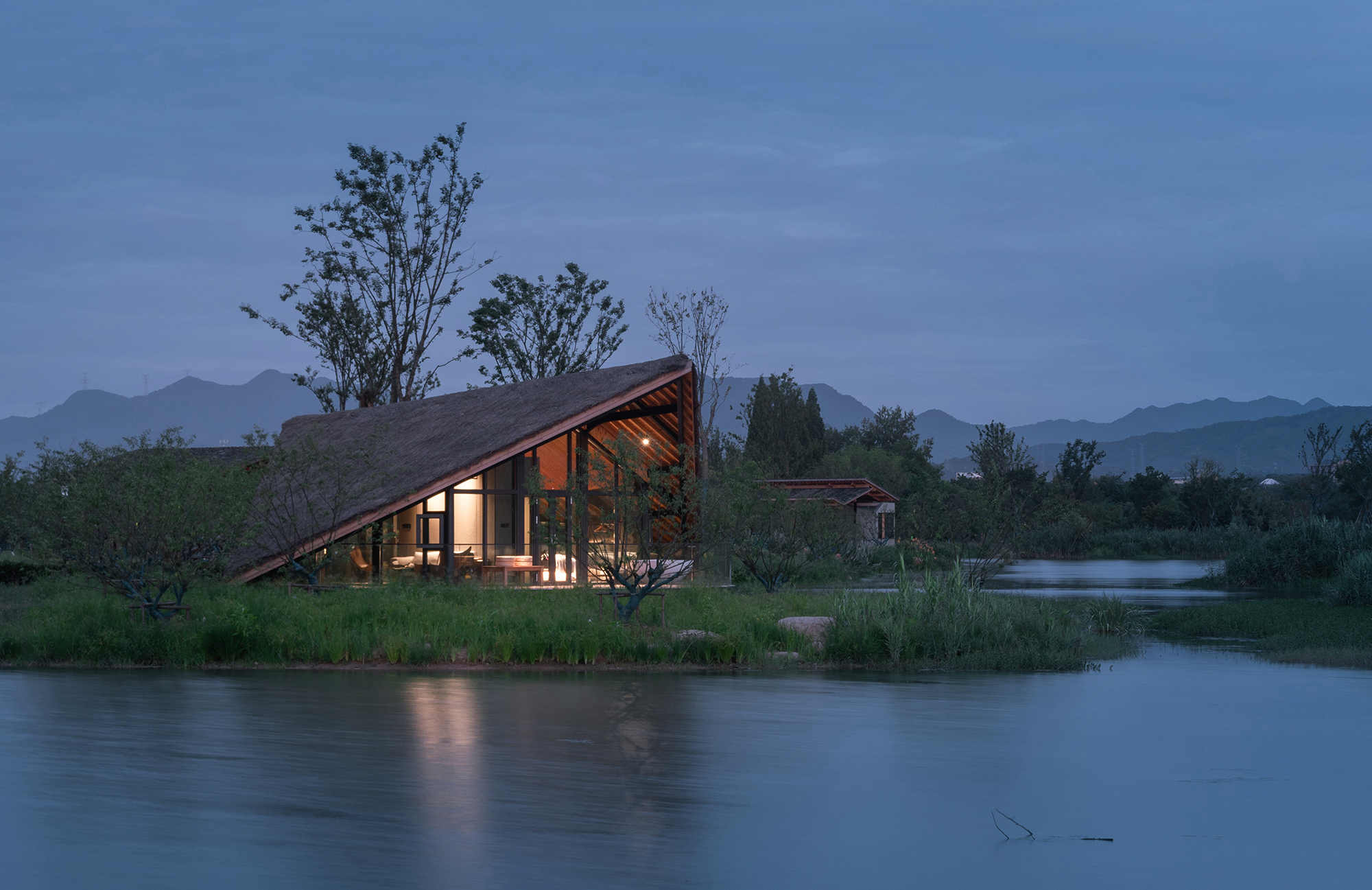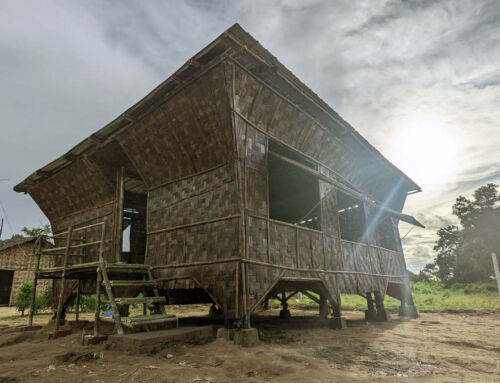In the vicinity of the Fuchun River, in the Fuyang District of Hangzhou, Zhejiang Province, China, a unique hotel stands on the wetland of Yangbei Lake: the Wetland Eco Hotel. It consists of a group of seven villas on a pebble island, arranged so that they are as close to the water as possible, with spectacular views, without losing their privacy. The island is connected by a bridge, but guests can also access their rooms by boat.
A large gabled roof that extends almost to the ground, or whose ends rise up towards the sky, gives the two types of villas in the hotel the appearance of a swallow perched on the water or about to take flight. This architecture is apparently a modern, more stylised version of traditional architecture, specifically the Jiangnan style present in this geographical area of China (from “jiang”, river, and “nan”, south, referring to the southern part of the Changjiang or Yangtze River). The villas of the Wetland Eco Hotel also aim to intervene minimally in nature and use natural materials such as wood to frame the landscape over the water.
As for the design, according to the architects, from the local studio Shulin Architectural Design, their main concern when designing the hotel was to “introduce this natural atmosphere from the outside to the inside”. They achieve this thanks to the large glass screens that envelop the interior space of the villas on all four sides. Therefore, “the interior atmosphere changes with the weather and the season, and nature also becomes part of the building“. A large terrace and an outdoor bathtub complete the relationship of the villas with the landscape.
Finally, in terms of construction, most of the prefabricated components are assembled in-situ. The steel structure, the solid wood of the beams, the glazing, as well as doors and windows, which are produced in factories, are transported, assembled and fitted on site. This means that 80% of the elements of the villas are prefabricated. This enabled the project to be completed quickly and accurately, with minimal impact on the idyllic wetland environment of Lake Yangbei.
Sources: Shulin Architectural Design, Archdaily, Avontuura, The World of Chinese.
Images: Shulin Architectural Design.










